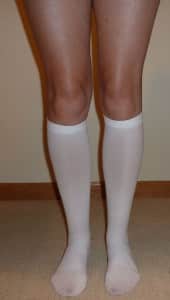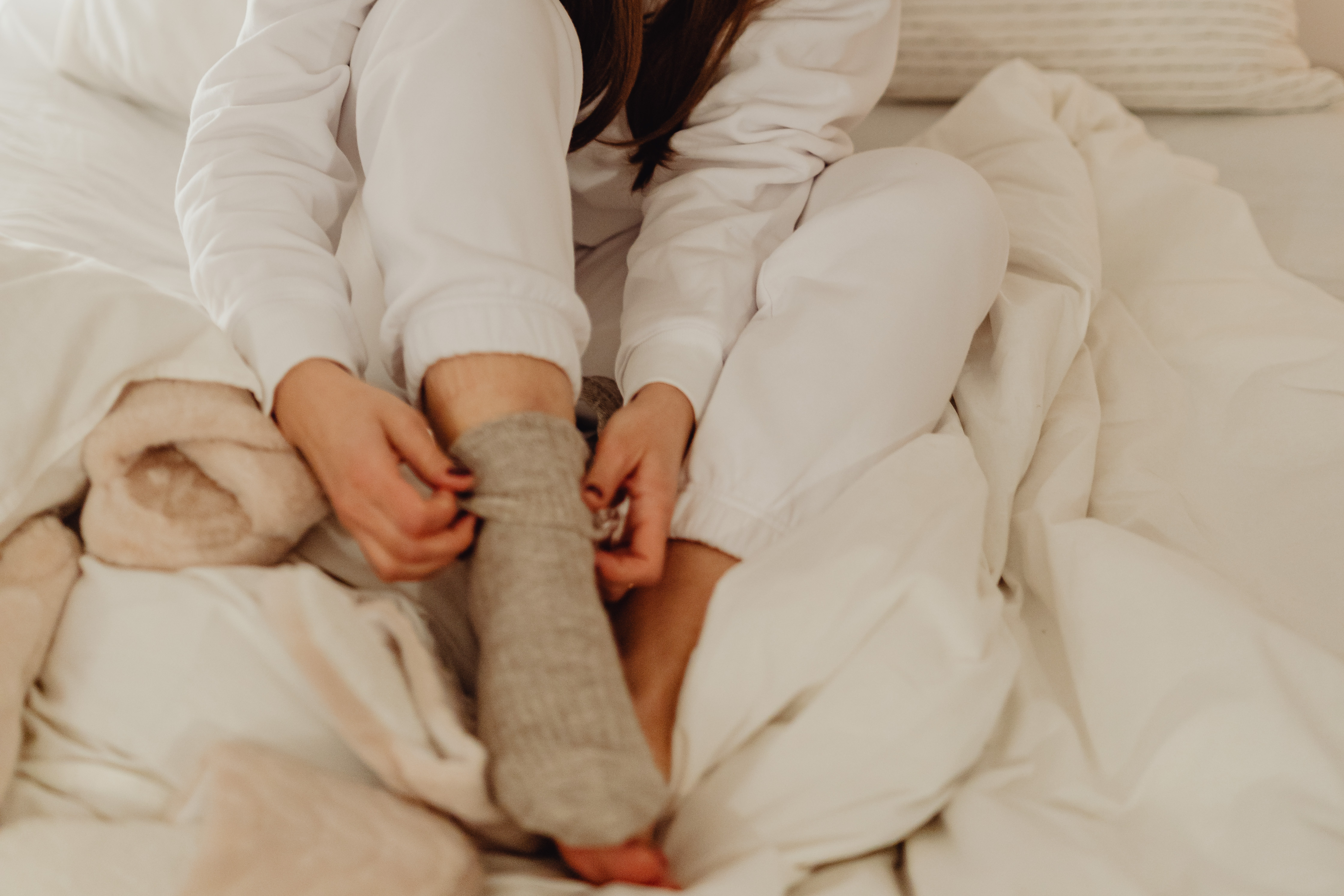To read the previous part, go to Support Socks during Pregnancy – Yes or No?
- She has a history of vascular disorders, venous insufficiency disorders
- She already has varicose veins, swollen legs or discomfort
- She already has thrombophlebitis (clot in a blood vessel)
- She is over 35
- She has a BMI of over 30, obesity
- She smokes
- She is carrying twins, which means more weight, more risk
- She will take a flight (travel ideally should take place between 18-24 weeks)
How Support and Compression Socks and Stockings Work
 Support socks place high pressure lower down, and then less and less as they rise towards the top. They act like a pump that pushes blood towards the top. This improves blood circulation from the bottom towards the top.
Support socks place high pressure lower down, and then less and less as they rise towards the top. They act like a pump that pushes blood towards the top. This improves blood circulation from the bottom towards the top.- By compressing blood vessels, we try to reduce vessel dilation at the same time as the accumulation of liquids in the lower limbs.
- Leg compression can compensate for a deficiency in the venous walls in the blood vessels and as such reduce retention.
The Role of Support Socks
- Soothe heavy limbs, liquid accumulation and twinges, swelling
- Reduce the risk of deep vein thrombosis (phlebitis)
- Prevent venous disorders and insufficiency
Continue reading with : Advice to Improve Venous Insufficiency in Lower Limbs During Pregnancy.


